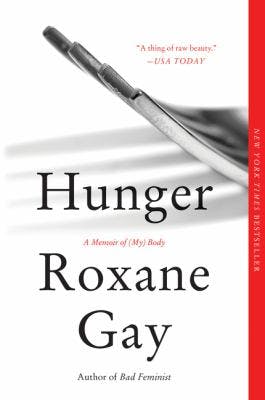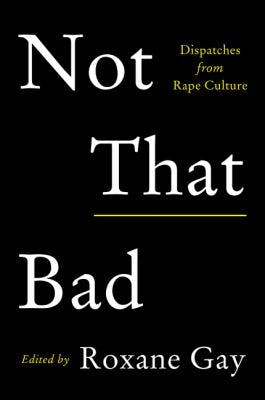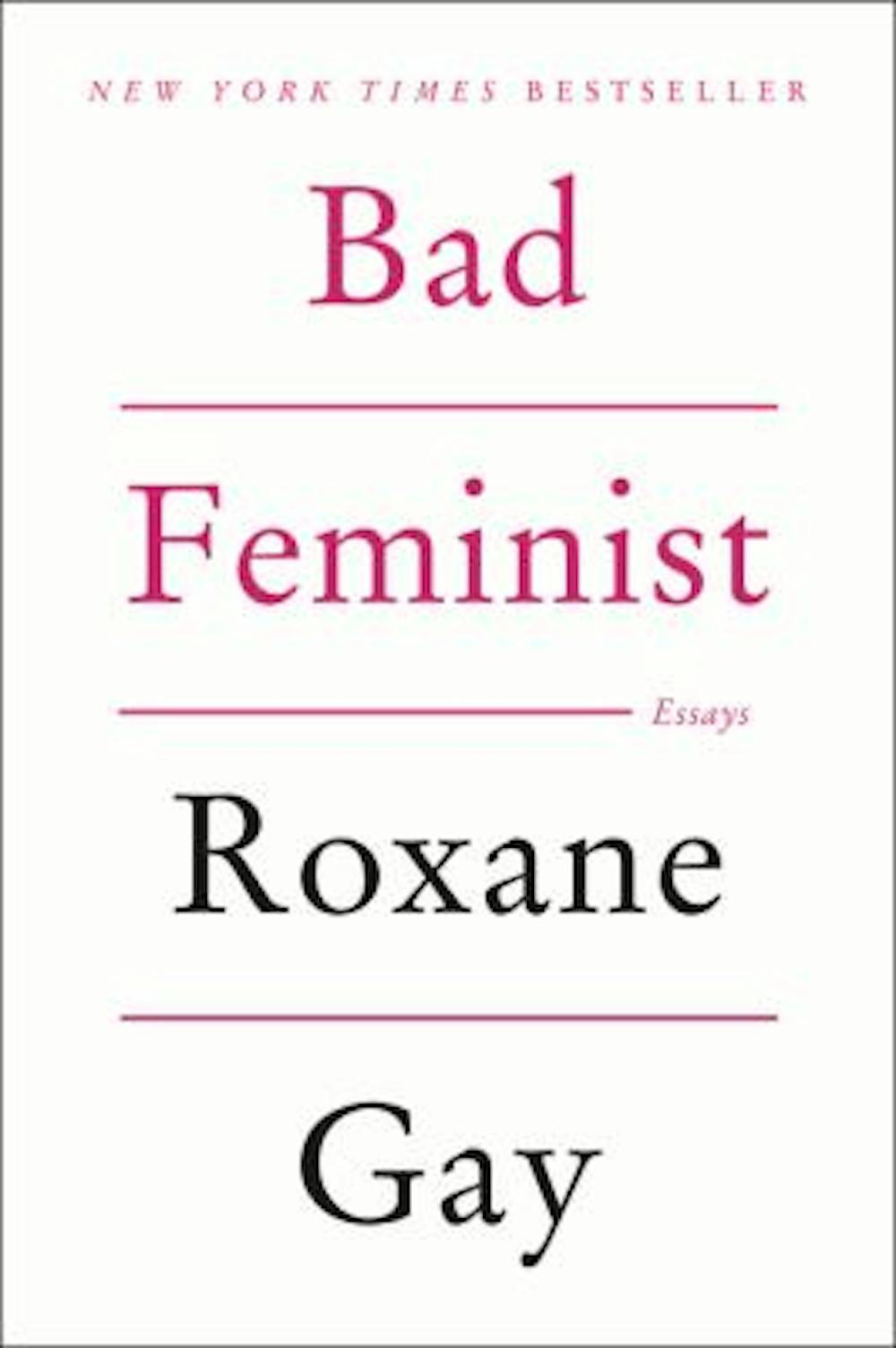Bad Feminist by Roxane Gay, 2014
Is it “good”? Yes. It’s Roxane Gay. Of course it’s good. It’s Roxane Gay. She is the definition par excellence of “good.” Does it deliver on what’s promised? Hey, wait a minute there. No. Not exactly. “Bad Feminist” is a collection of essays in which Gay examines her personal life, the media and race rhetoric in the United States, all within one tome. The work is equal parts memoir, musings and in-depth cultural analysis of television, movies and gender politics. It makes you wonder how Gay effectively pitched the collection to an agent/editor given the work’s somewhat negotiated cohesion. Let’s be clear: Roxane Gay is brilliant. She’s a deep thinker and a writer who makes her complex and nuanced ideas accessible to a broad public of people. But why is a recounting of her participation in a competitive Scrabble tournament in this collection alongside her critiques of Quentin Tarantino’s slavery era cinematic film “Django Unchained”? I want to be open to new types of publication, especially if they’re featuring the black, first generation, Haitian American child of immigrants who grew up in Midwestern towns, as Gay is and as she did. However, “Bad Feminist”challenges my concept of the very concept of a “book.” Assuming a book is a compilation of writing that is centered on a singular theme or narrative, as they often, but not exclusively, are, this is not a book. It happens to be a collection of essays that exists within the same binding and perhaps the reader should be given more of a clue as to what they’re in store for.
Are we praising Roxane Gay because she’s engaging topics that are long overdue for public discourse? (Yes.) Or because she is producing work that makes sense in the publications, layouts and formats in which it appears? (Not so much.) What do I mean when I say the work is “good” then? Well, what I’m actually saying is Roxane Gay herself is an impressive person. She has fought tremendous self-loathing. She is undeniably an admirable activist for women’s rights and bodily autonomy. Her voice is a critical one that sees truth and does not balk from it, even when it’s ugly— especially when it’s ugly. However, “Bad Feminist” is an uneven work. It reflects her intelligence. Yet, it is an early and “green” work that does not reflect talented, editorial skill. I wouldn’t write her off — and I have the benefit of saying this after having read and listened to her works “Hunger” and “Not That Bad.” But I think she was still getting her bearings when this one came out— still sharpening her tools. I would only recommend individual essays of this work, for example, if someone was teaching a class on media representations of Black suffering, encouraging them to review Gay’s words on “12 Years A Slave.” But it’s harder to recommend the compilation as a whole as it’s so diffuse in its focus. For other thematic works like this one, maybe see “Why I’m Not A Feminist” by Jessica Crispin (which I have yet to read) or “Sister Outsider” by Audre Lorde, which I’ve listened to via OverDrive.

Hunger: A Memoir of My Body by Roxane Gay, 2017
Trigger Warning: This book regularly references rape and bulimia as lived experiences by the author.
Brilliant. Personal. Timely.
Gay’s “Hunger” is a compilation of more than 80 autobiographical essays, vignettes and commentaries in which the author tells of growing up in a loving family and how she was traumatically gang raped at the age of 12. The rape destabilized her confidence, sense of self-worth and relationship with her body for decades to come. For the record, Gay refers to herself as a “victim,” not a “survivor.” As a tween, Gay believed that if she made her body unattractive, she would never again be subjected to the sexual violence she experienced. So she ate and ate and her body grew and grew. And while she engaged this protective mechanism, she was utterly unable to reveal the cause of her excesses to her parents and family for many, many years.
What’s special about this book is that Roxane Gay articulates a nuanced notion that isn’t nearly as broadly held as I believe it ought to be: who we are is wildly distinct from the bodies we inhabit. She is a smart writer, bisexual, Haitian American, a Midwesterner with a doctorate degree who also happens to be morbidly obese. And while we live in bodies that can be unruly, non-conforming and may not encounter appropriately accommodating furniture, walkways, vehicles and the sort, who we are and what we can accomplish is not determined by thigh gaps and washboard abs, despite what the culture might suggest.
I would recommend this work to anyone who feels that their body is seen, read and assigned a narrative even before their thoughts are shared, heard and weighed. For more works like this, see “meaty” by Samantha Irby or “Shrill” by Lindy West.

Not that Bad: Dispatches from Rape Culture edited by Roxane Gay, 2018
“Not That Bad” is an anthology of testimonies from people who have been victimized by rape culture. Rape culture refers to a whole series of phenomena that surround and may include rape: victim blaming and shaming, the proclivity to protect abusers, the widespread ignorance surrounding conversations that seek sexual consent and more. Editor Roxane Gay is a writer and academic who was gang raped as a child and shares some details surrounding her own story in the opening introduction. The gang rape she experienced caused her to lose her faith and to engage in eating habits that she believed would protect her from further abuse, which ushered in a decades’ long era of struggles with her weight, as documented in her memoir, “Hunger.” Gay has a strong history of seeking fair and broad representation of women’s voices and she achieves that goal in this compilation, including a few men’s testimonies as well.
In “Not That Bad,” inviting over two dozen participants, Gay does everything you expect she would: she seeks out and collects a diversity of voices to speak to the nuances and fissures of a theme. She includes a Hollywood actor’s voice who was not touched, groped or raped but whose sense of bodily autonomy was violated in other ways via the media. She includes a story from a woman who studied law and was trained to discredit women through character attacks. She includes the voice of a woman who never learned to say no as she is much more familiar with acquiescence and prioritizing her sexual partner’s needs and demands. In terms of the prevalence of rape and rape culture, the book is much needed and long overdue. In some ways, rape is so commonplace that our societies have become desensitized to its impact as demonstrated by the use of rape narratives in video games or the word “rape” as a shorthand for minor, non-sexual violations or as a punchline for jokes. This collection shakes readers and re-awakens us to the actuality of rape-related trauma, reminding us that there are victims and victimizers all around us. This work is available in print and as an audiobook. For a different type of title that celebrates women’s pleasure in sex, see “Moan: Anonymous Essays on Female Orgasm.”




